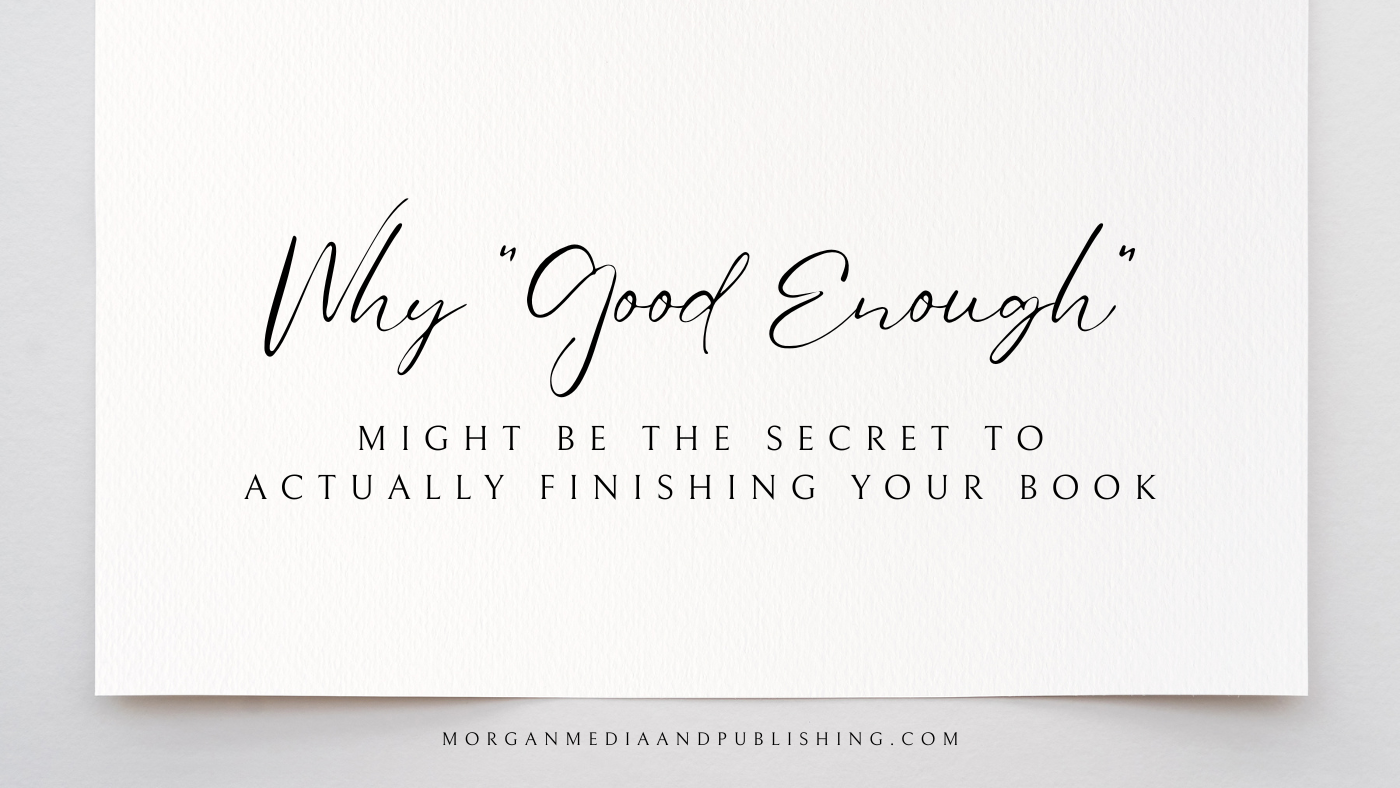
Why “Good Enough” Might Be the Secret to Actually Finishing Your Book
Writers are perfectionists by nature. You write a sentence, delete it, write it again, and stare at it like it might transform itself into Hemingway if you wait long enough. The problem is, chasing perfect sentences too early often kills the book before it even has a chance to live.
Here’s the truth. Most published authors didn’t start with a perfect draft. They started with something messy, awkward, and at times, downright cringe-worthy. What made the difference wasn’t magical talent or secret knowledge. It was finishing. They gave themselves permission to write badly in the beginning because they knew that later they could revise it into something stronger.
Think of your first draft like wet clay. It is supposed to be shapeless. It is supposed to look rough. You don’t sculpt a masterpiece by demanding the clay form itself into perfection on day one. You shape it, press it, pull pieces off, add pieces back, and keep working until something real takes form. Writing is the same.
If you’re a new writer, here’s a trick: lower the bar on your first draft. Tell yourself it doesn’t have to be good, it just has to exist. Write the chapter even if it’s clunky. Let your characters talk too much. Throw in a scene that might not stay in the final version. You can’t edit a blank page, but you can transform a messy one into something powerful.
When you stop aiming for flawless and start aiming for finished, the writing process gets lighter. You’ll find yourself moving forward instead of circling the same paragraph for weeks. That momentum builds confidence. And confidence, more than perfection, is what helps you cross the finish line.
What Famous Authors Know About Bad First Drafts
If you need proof, look at what some of the most successful authors have said. Anne Lamott’s Bird by Bird includes the famous chapter on “shitty first drafts.” She makes it clear that no one writes something brilliant on the first try, not even professional authors. The brilliance happens in revision. Stephen King has said that his first drafts are written with the door closed and only for himself. The second draft, the revision, is where he shapes it for readers. J.K. Rowling has talked openly about throwing out pages of material that didn’t work but were necessary to help her figure out the story.
These authors aren’t superhuman. They’re just disciplined enough to finish the rough draft and then do the work of refining it. Their process shows that imperfect beginnings are not a flaw of writing. They are the foundation of it.
Practical Ways to Embrace “Good Enough”
So how do you actually put this into practice? Here are a few simple strategies:
Set a timer and write without editing. Even 15 minutes can be productive when you silence the critic in your head and let the words flow.
Turn off spellcheck. The little red squiggles can pull you out of your flow and make you fixate on errors that don’t matter yet.
Give yourself a word count floor instead of a ceiling. Instead of “I must write 1,000 words,” try “I only need 200 words.” You’ll often go past it without the pressure.
Leave notes for your future self. If you’re stuck on a detail, type “[research this later]” and move on. You don’t need to know the name of every side character or the exact length of a medieval sword in draft one.
Treat your draft like a conversation. Don’t worry about being elegant. Just get the idea across, like you’re telling the story to a friend. Later, you can shape it into something polished.
The Takeaway
When you silence the inner critic and embrace “good enough,” writing becomes less about getting everything perfect and more about getting the story out of your head and onto the page. And that’s what separates dreamers from authors. Books are not born out of flawless first sentences. They are born out of imperfect drafts that someone was brave enough to finish.
So here’s your challenge for the week: write the scene you’ve been avoiding. Write it badly. Write it messy. Write it wrong. Just write it. Future you — the one holding a finished draft in hand — will be grateful.

